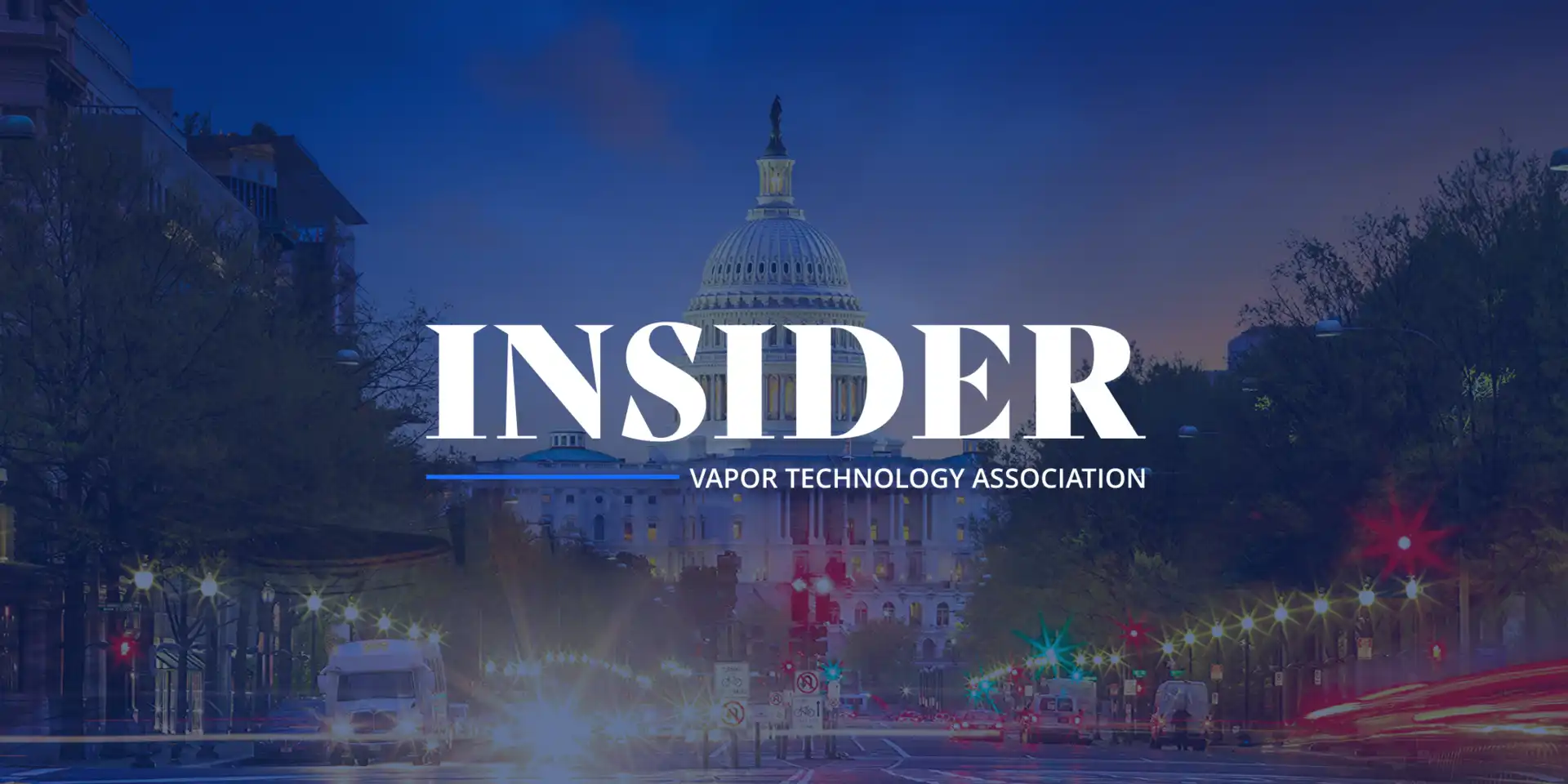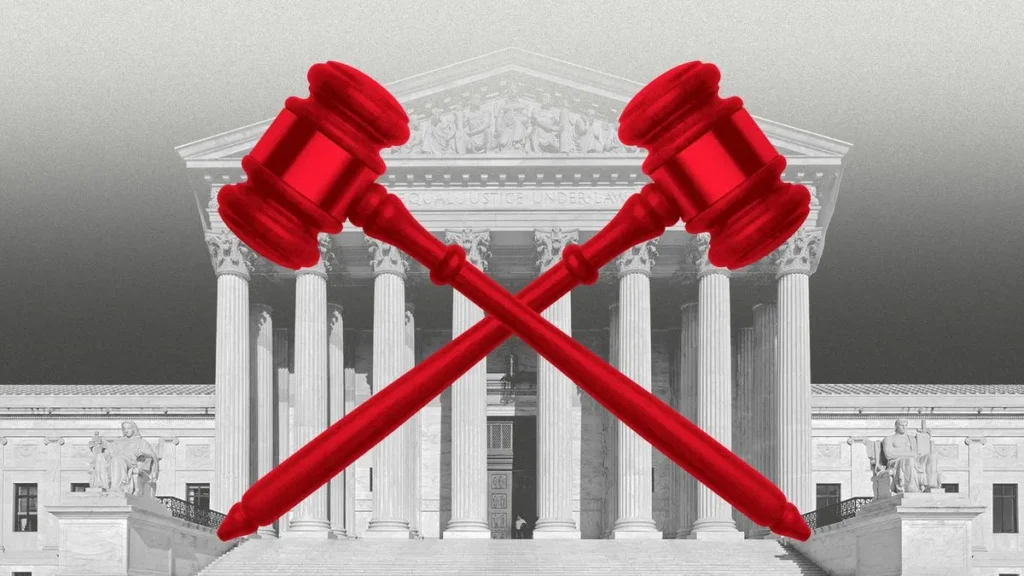VTA Insider April 2024: Update on the state of the States, FDA in the Hot Seat

Published on April 18, 2024
VTA Insider keeps you informed of critical issues impacting the vaping industry both in Washington, DC and in the states. We will cover regulatory developments, legislation, news of note and other industry insights. VTA will also share with you our own analysis of what we as an industry need to do to grow and prosper.
Lets Dive In.
UPDATED: State of the States

State of the States: With some state legislatures having adjourned, small business killing PMTA registry and flavor ban bills that were not stopped or amended during the regular legislative session, have reached their respective governor’s desks for signature with a mix reaction from Governors.
- In Virginia, Governor Youngkin substantially amended Virginia’s PMTA registry bill although he did not veto. Instead, he exercised caution by including a delayed enactment clause (meaning the most troubling provisions will not take effect until December 31, 2025) and materially changed enforcement provisions. You can read our full statement here.
- In Vermont, Governor Phil Scott vetoed a flavor ban bill outright and, in his veto message, delivered a refreshing perspective which highlighted the hypocrisy behind these bills when flavored cannabis and alcohol abound.
- In Kentucky, Governor Andy Beshear signed into law the PMTA bill, becoming only the sixth state in the country with some form of PMTA registry now on the books this year.
What’s next: Legislation is still pending in 20 other states and VTA is hard at work educating on the public health and small business damage these bills would create. Check out VTA’s Action Center for bills needing your voice.
FDA in the hot seat

The big picture: Last week, FDA Commissioner Robert Califf was grilled before the House Oversight Committee. The issue of vaping and harm reduction came up a number of times during the three-plus hour hearing but if you were expecting any indication that FDA would come off of their unscientific approach to tobacco product regulation – you will be disappointed.
Why it matters: Despite being forced to admit that it would be better (less harmful) for smokers to vape instead, we didn’t get any closer to a transparent explantation of where vaping fits into FDA’s smoking eradication mission. Instead, we got:
- An incorrect explanation of how FDA is applying their “Appropriate for the Protection of Public Health (APPH) standard;
- No explanation of how FDA will address the Reagan Udall Foundation’s critiques of the Agency allowing politics to trump science in the PMTA process;
- No acknowledgement of FDA’s role in spreading dangerous misinformation about the risks of smoking vs. vaping.
Harm Reduction Lip Service: Remarkably, Califf raised harm reduction as the regulatory framework to be used for recreational cannabis use. But, Califf dismissively referred to “tobacco harm reduction” as an “industry term.” Clearly inconsistent on the issue, Califf paid lip service by saying “we’re all in favor of harm reduction,” but then testified that what’s found in vape “residue” is “horrifying” only to say that “it’s much less toxic in terms of all the things that cause cancer and heart disease” (i.e., cigarettes).
By the numbers: Despite questions by Members of why CTP is authorizing 900 new cigarettes and only a handful of vape products – a finding revealed in this VTA Report – Califf incorrectly stated the public health standard as protecting against the hypothetical risk of young people getting addicted to “nicotine” and then moving to combustible products. Not only is this not the public health standard, Califf once again demonstrated FDA and CTP’s callous indifference to adult smokers.
None of this stopped FDA from stating that if CTP just had another $100 million in user fees from e-cigarette manufacturers in their budget request, they would do a better job.
You can catch the full testimony here.
Vaping and the Supreme Court

It looking more likely that a major vaping case is likely to go before the Supreme Court in the near future.
After the 5th Circuit Court of Appeals took apart the FDA’s bad faith denial of Triton’s PMTA, and both vacated and remanded the denials back to the agency with instructions that CTP actually review the applications, FDA has filed a filed a petition to the U.S. Supreme Court to hear the case.
Rewind: You can read VTA’s statement on the 5th Circuit decision here.
Why it matters: While the Supreme Court only accepts a very small percentage of the petitions filed, that the FDA as the lead regulatory agency over tobacco products has filed the petition increases the likelihood that this case will be heard.
What’s at stake: Given the breadth of the 5th Circuit’s incisive en bancruling, the entire PMTA process being used by FDA to block vaping products from market authorization could be evaluated. Importantly, the petition would be heard only after SCOTUS issues its ruling on the Chevrondoctrine which could significantly impact how it evaluates the 5th Circuit’s stinging critique of regulatory malfeasance at FDA’s Center for Tobacco Products.
Worth Your Time

- New research published in the Oxford Academic demonstrates that giving consumers smoking alternatives drives smoking cessation.
- Jonathan Adler explores just how backwards FDA policy is concerning menthol cigarettes and menthol vapes.
- Drug policy iconoclast Ethan Nadelman slams misguided nicotine prohibitionists.
- Check out VTA’s most recent piece on how FDA is ignoring the real harm to our kids.
Stay tuned in with us for lots of new developments and make sure your friends and colleagues are signed up to receive our news and information.
Got questions? If you have any questions about the issues we have covered, have suggestions for content, or how you can support our efforts, please feel free to contact us at press@vaportechnology.org.